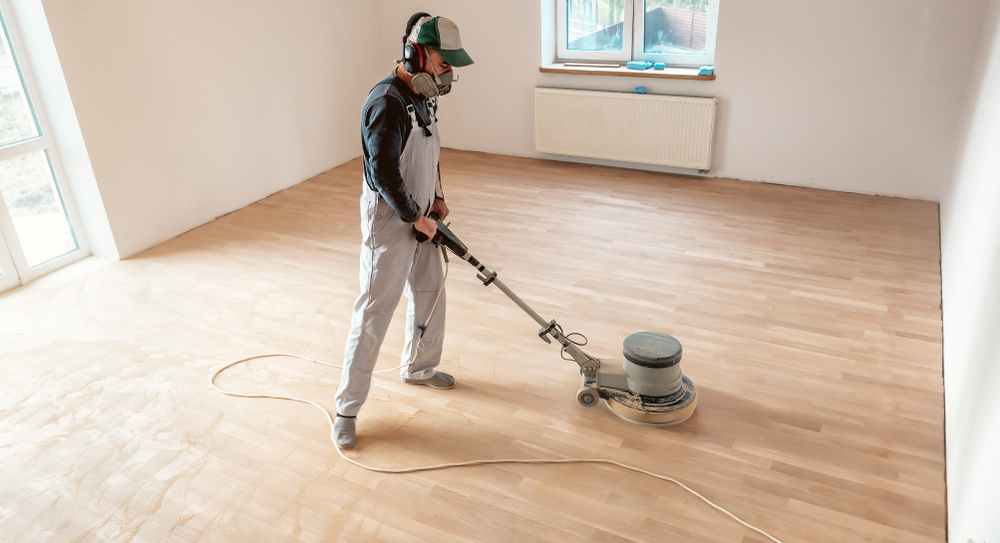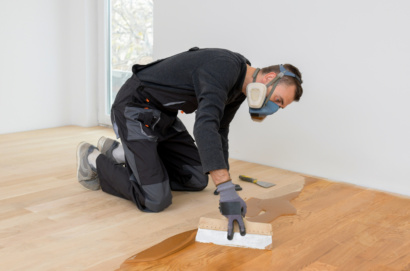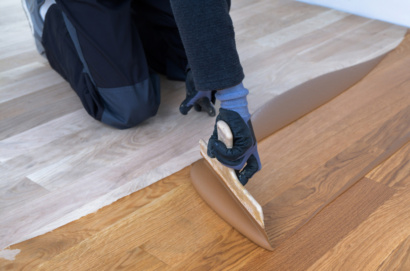Your hardwood floors have seen better days. They’re scratched, faded, and just not the shining centerpiece they once were in your home. It’s time for a makeover, but you’re faced with a crucial decision: should you take on the challenge of refinishing them yourself or enlist the help of professional contractors? Both options have their merits and drawbacks, so let’s explore the pros and cons of DIY hardwood floor refinishing versus hiring the pros, and provide some valuable tips for those considering either path.
DIY Hardwood Floor Refinishing: The Thrill of Independence
Benefits:
- Cost Savings: The most obvious advantage of the DIY route is cost savings. Professional floor refinishing can be expensive, with prices varying depending on factors like the size of the space and the extent of the work required. By taking matters into your own hands, you can significantly reduce labor costs.
- Personal Satisfaction: Completing a DIY floor refinishing project can be incredibly satisfying. There’s a sense of accomplishment that comes with seeing the transformation of your floors from shabby to chic, all thanks to your hard work.
- Flexibility: DIY allows you to work on your own schedule. You can take your time, plan around your other commitments, and tackle the project at your own pace.
Drawbacks:
- Skill and Expertise: DIY floor refinishing is not for the faint of heart. It requires a certain level of skill, expertise, and knowledge about the process. If you’re not experienced, you risk making mistakes that could lead to a less-than-desirable outcome.
- Time-Consuming: Refinishing hardwood floors is a time-consuming endeavor. It can take days to complete the entire process, including sanding, staining, and sealing. If you have a busy schedule, this may not be feasible.
- Equipment and Materials: Properly refinishing floors requires specialized equipment like sanders, buffers, and applicators. The cost of renting or purchasing these tools can add up, reducing your initial cost savings.
Professional Hardwood Floor Refinishing: The Assurance of Quality
Benefits:
- Expertise: Professional contractors have years of experience and specialized training in refinishing hardwood floors. They know the ins and outs of the process, ensuring a high-quality result.
- Time Efficiency: Hiring professionals means the project will be completed much more quickly than if you were to do it yourself. They have the manpower and equipment to get the job done efficiently.
- Quality Materials: Contractors typically have access to high-quality materials and finishes that may not be readily available to consumers. This can result in a longer-lasting and more durable finish.
Drawbacks:
- Cost: The primary drawback of hiring professionals is the cost. Their expertise and convenience come at a price, which can be substantial depending on the scope of the project.
- Less Control: When you hire professionals, you have less control over the process. While this can be a positive if you want to avoid the stress of DIY, it means you have to trust their judgment and workmanship.
- Scheduling: Coordinating with contractors can sometimes be challenging, especially if you have a tight timeline or limited availability. You may need to work around their schedule, which could be less flexible than your own.
Tips for Successful DIY Hardwood Floor Refinishing
If you’ve decided to go the DIY route, here are some essential tips to ensure a successful project:
- Educate Yourself: Take the time to thoroughly research the refinishing process. There are numerous online tutorials, books, and videos that can help you understand each step.
- Gather the Right Tools: Invest in or rent the necessary tools and materials, including sanders, stains, and finishes. Make sure you have safety equipment like goggles and dust masks.
- Practice on Scrap Wood: Before you touch your actual floors, practice on a scrap piece of hardwood to get a feel for the equipment and techniques involved.
- Prepare the Area: Clear the room of furniture and cover nearby surfaces to protect them from dust and stains.
- Follow Instructions: Carefully follow the manufacturer’s instructions for each product you use, from sandpaper grits to drying times.
- Take Your Time: Patience is key in floor refinishing. Rushing through the process can lead to mistakes and an uneven finish.
- Consider Professional Help if Needed: If you encounter challenges beyond your expertise, don’t hesitate to seek professional assistance before you make costly mistakes.
In conclusion, whether you choose DIY hardwood floor refinishing or hire professionals, the key is to make an informed decision that aligns with your budget, skill level, and timeline. Both options can result in beautifully refinished floors, but they come with their own set of advantages and challenges. Ultimately, the choice is yours, and with the right approach and mindset, you can achieve the stunning, rejuvenated hardwood floors you desire.




